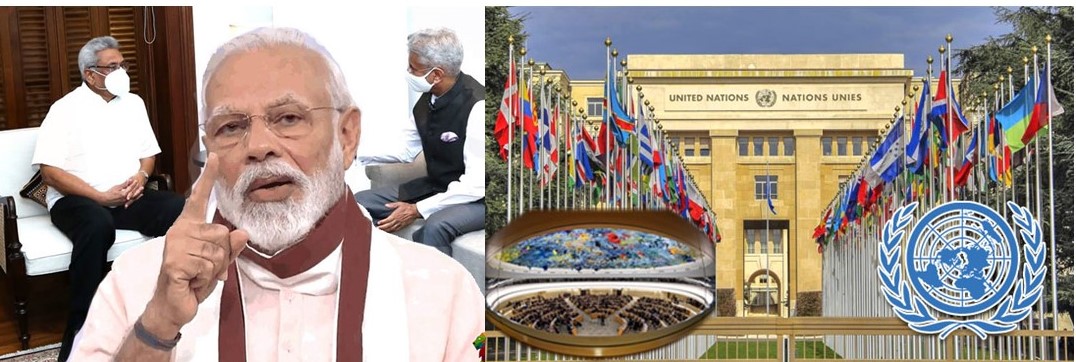India on Friday called upon Sri Lanka to take “necessary steps” to address the “legitimate aspirations” of the Tamil community, while reiterating its earlier stance that it is in Sri Lanka’s “own interest that the expectations of Tamils in Sri Lanka for equality, justice, peace and dignity, within a united Sri Lanka, are fulfilled”.
Delivering a statement in the interactive dialogue segment on the U.N. Human Rights chief’s latest report on Sri Lanka, Ambassador Indramani Pandey, Permanent Representative of India told the Human Rights Council in Geneva that, “As its friend and immediate neighbour, India has consistently called upon Sri Lanka to fulfil its commitments on addressing the issues related to protecting the interest of Tamils in Sri Lanka.” While making a similar intervention last year, India abstained from voting on the resolution on Sri Lanka. There is no resolution or vote on Sri Lanka this year.
Calling for continued engagement by the Government of Sri Lanka with the international community, India on Friday noted that High Commissioner Michelle Bachelet’s recent report raises “important concerns” on promoting, reconciliation, accountability and human rights in Sri Lanka.
The written report, among other observations, highlighted “setbacks to accountability for past human rights violations and the recognition of victims’ rights”, and the failure of transitional justice mechanisms to win the confidence of victims affected by the civil war that ended in 2009.
In her statement to the Council on Friday, Ms. Bachelet said, “Regrettably, the past year has also seen further obstruction and setbacks to accountability. Victims and their families continue to be denied truth and justice.”
“Two years after the expression of commitments to pursue an “inclusive, domestically designed and executed reconciliation and accountability process” before this Council, the Government has still not produced a credible roadmap on transitional justice towards accountability and reconciliation,” the High Commissioner noted, adding that “as long as impunity prevails, Sri Lanka will not achieve genuine reconciliation and sustainable peace”.
Tamil concerns
India’s statement in response focussed on long-pending concerns of Tamils and the need for power devolution. “We call upon Sri Lanka to take the necessary steps to address the legitimate aspirations of the Tamil community, including by carrying forward the process of reconciliation and the implementation of the 13th Amendment to the Constitution of Sri Lanka, to ensure that the fundamental freedoms and human rights of all its citizens are fully protected,” Ambassador Pandey said. India would “continue to urge” the Sri Lankan Government for the early conduct of elections to the Provincial Councils in keeping with its commitment to devolution of power, he said.
What is the 13th Amendment to the Sri Lankan Constitution, and why is it contentious?
The five-year terms of all nine Provincial Councils in Sri Lanka expired in 2018 and 2019. There is no official word on provincial polls from the Government, which is cash-strapped and growing increasingly unpopular in the wake of an unprecedented economic crisis, reflecting in fuel shortage and prolonged power cuts.
Thrust on 13 A and provincial polls
India’s emphasis on the 13th Amendment, which followed the Indo-Lanka Accord of 1987 and assured a measure of devolution, comes weeks after senior Tamil parliamentarians wrote to Prime Minister Narendra Modi, seeking his intervention in securing a durable political solution for Sri Lanka’s historic Tamil question.
Significantly, the signatories to the letter pointed to limits of the 13th Amendment, especially within a Unitary Constitution, and underscored their commitment to a political solution that goes beyond the Amendment, and is based on a federal structure that recognises Tamils’ “right to self-determination”.


